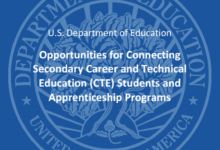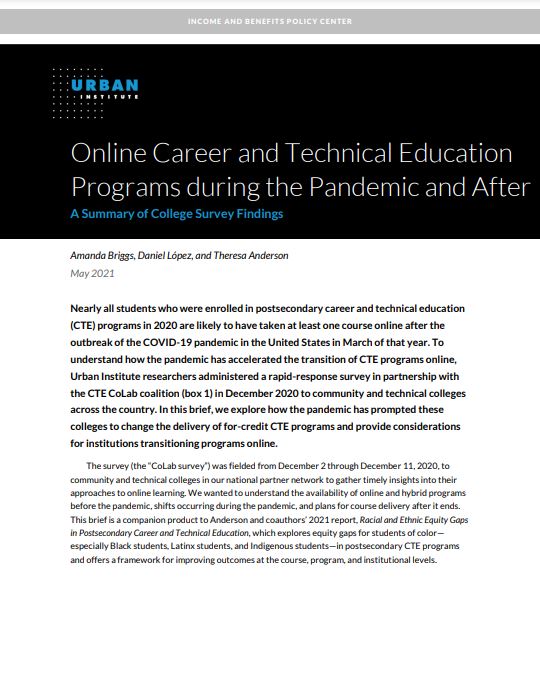The Urban Institute in partnership with CTE CoLab engaged in a rapid-response survey to community and technical colleges to understand the acceleration of online Career Technical Education (CTE) programs during the pandemic. Prior to the survey nearly all learners were likely to have engaged in their CTE studies through in person delivery methods. After March of 2020, the survey respondents indicated that they had taken at least one course online.
Across all CTE programs included in the survey, they found that:
- Many respondents anticipate returning to in-person instruction after the pandemic.
- Rates of in-person instruction are predicted to be lower after the pandemic as learners are now able to participate in several different forms of delivery methods for CTE programming
- The largest shift in program delivery is toward hybrid delivery after the pandemic.
Survey respondents also provided open-ended responses to questions about any challenges, opportunities and factors that impacted whether or not they anticipated continuing to offer CTE coursework online after the pandemic. Results indicated that:
- Access to Necessary Technology: Technology can be both a barrier and an opportunity for many learners in technical and community college CTE programming. Some students did not have access to programming because of their inability to have wireless access. Other learners had more flexibility in access as they were offered online classes that did not interfere with their personal lives.
- Preparedness for and Interest in Online Learning among Studentss and Instructors: Both instructors and learners struggled in being prepared for the transition to online courses. The sudden shift to online learning did not allow instructors to have extensive professional development in shifting and teaching their courses online.
- Employer Partnerships, Work-Based Learning, and Hands-on Training: Employers struggled providing quality work based learning opportunities in an online setting especially for sectors that require engagement in hands on learning. There is an opportunity for employers and postsecondary institutions to partner and build more extensive learning management systems that allow learners to engage in work-based learning online.







